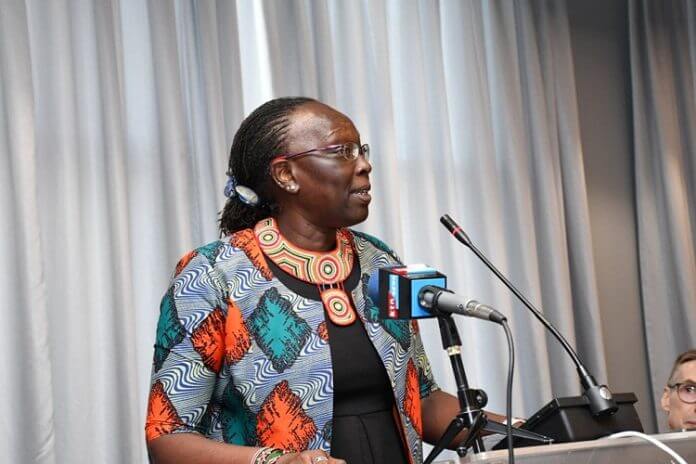
Our Projects are
Transforming African Trade
Quick Contacts
2nd Floor, Fidelity Insurance Centre Waiyaki Way, Westlands

Kenya is targeting to conclude deals on services in ongoing and pending trade negotiations with various partners in order to boost export volumes amid COVID-19 pandemic going into next year.
According to Industrialization, Trade, and Enterprise Development CS Betty Maina, previous trade negotiations have focused more on the sale of goods even though the services sector has indicated the fastest growth in Kenya.
CS Maina says education, tourism, and medical, financial, ICT services have been identified as the fastest-growing segments which Kenya is keen to add on a list of exports in its negotiations with various countries.
“One of the challenges is that we have not concluded as many trading services agreements like the East African Common Market Protocol. There are still a lot of restrictions and misunderstandings on services especially the mode and presence of service notably those to do with work permits,” Maina said.
She went on, “In our negotiations with the US services are part and parcel of it but if there is contestation about the mode of export, presence, and export it would be difficult to realize growth,”
Data compiled by the Observatory of Economic Complexity indicate that Kenya service exports amounted to 492 billion shillings as of 2014.
Following a disruptive period marked by coronavirus pandemic which slowed exports of key products since March this year when the health crisis began, the government is also keen on expanding the volume of exports to new markets and increase investments in the production value chain.
“We have actually exported frozen avocado to China in the last two months. We have markets in Europe and Africa. With the African Continental Free Trade Area a lot of the goods imported into the continent can be supplied by Kenya,” Maina said.
According to the Kenya Export Promotion and Branding Agency, the country has managed to withstand the pandemic to realize export revenue growth in the second half of the year.
Export revenues from 25 items Kenya produce surged by Kshs 14 billion to stand at Kshs 317 billion according to the export agency.
“We thought at the start of the pandemic we would lose a large export market but the numbers show that the only sector we lost is horticulture at Kshs 3.3 billion, textile and apparel Kshs 2.5b and petroleum and oil exports Kshs 6 billion compared to quarter two of 2020,” KEPROBA Chairman Jaswinder Bedi said.
Last year, total export value declined by 2.9 percent to KShs 596.7 billion, while total imports increased by 2.4 percent to KShs 1.8 trillion.
Kenya is similarly keen on a change of market through diversification of primary goods to increase export receipts.
“We generate about Kshs 140 billion of revenues annually from 400 million kilos of tea exports. If you look at Sri Lanka they export 300 million kilos and generate Kshs 700 billion of tea revenue. This is 60 percent lower compared to Kenya and this shows we have been focused on non-valued added goods,” Bedi added.
They were speaking during a virtual meeting organized by KEPROBA to discuss Export Agenda 2020-2021.
Read original article
Disclaimer: The views and opinions expressed in this article are those of the authors and do not necessarily reflect the official policy or position of TradeMark Africa.